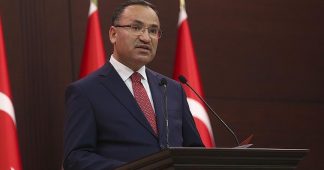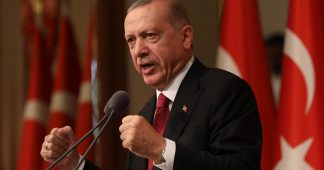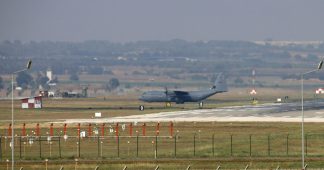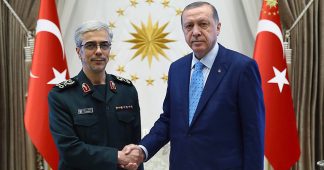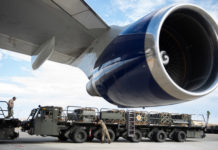Why Turkey Is Pivoting Toward Iran and Russia
Having long criticized U.S. policy in the Middle East, President Donald Trump has outlined the contours of a fresh approach to the region. Last month, his administration unveiled its new Syria strategy, marking a departure from a mission focused on countering the Islamic State (or ISIS) to one aimed at containing Iran. But these new plans don’t consider a critical challenge: the shifting alignments in the region, which have intensified following the killing of the Saudi journalist Jamal Khashoggi at the Saudi consulate in Istanbul.
Alignments in the Middle East have long been shifting tectonic plates. For decades, regional powers—particularly Iran, Iraq, Israel, Saudi Arabia, and Turkey—have competed to maximize power against the backdrop of interventions by Russia, the United Kingdom, and, later, the United States. Until recently, the United States and its regional allies—Israel, the majority of the Arab Gulf states, and Turkey—were aligned against Iran. In the aftermath of the 2015 Iran nuclear agreement, it seemed certain that these regional powers, backed by Washington, would succeed in isolating the mullahs. But myriad domestic, regional, and international factors have combined to obviate this long-standing status quo. The most significant result of these developments has been Turkey’s drift away from the United States and toward Iran and Russia.
ANKARA’S STRATEGIC PIVOT
There are several reasons for Ankara’s emerging alignment with Tehran and Moscow. First, the ascension of Recep Tayyip Erdogan to the Turkish presidency in 2014—a move that marked his consolidation of power after over a decade as prime minister—signaled a shift in the country’s politics. Erdogan has empowered religious factions and moved the country away from Ankara’s celebrated secularism, which dates back to its founder, Kemal Ataturk, in the early twentieth century. Erdogan’s worldview shares many tenets with those of the Islamic Republic and Russia. Like Moscow and Tehran, Ankara is now more anti-Western than at any point in recent memory.
Read more at https://www.foreignaffairs.com/articles/turkey/2018-10-31/major-realignment-taking-place-middle-east
